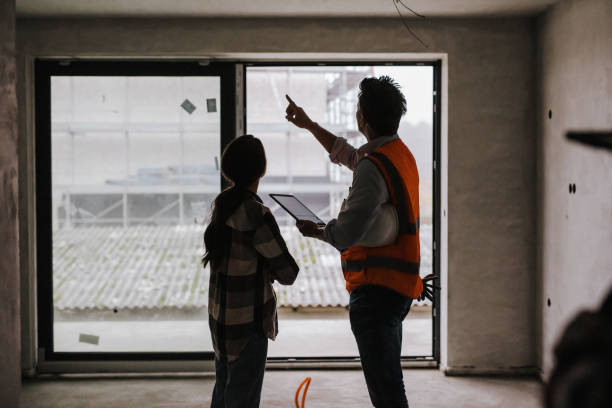Navigating the world of home buying, investing in real estate, or managing a property can feel like walking through a maze. One crucial element that helps ensure you’re making a smart decision is understanding the different types of building inspections. Not only do these inspections provide peace of mind, but they also safeguard your financial investment. In this comprehensive guide, we’ll explore various building inspections and their importance for home buyers, real estate investors, and property managers.
By the end of this post, you’ll have a clear understanding of what each inspection entails, why they are essential, and how to select the right inspector for your needs. Whether you’re a budding investor or a seasoned property manager, building inspections are a key piece of the puzzle in protecting and enhancing your property value.
Understanding Building Inspections
Building inspections are an integral part of the property transaction process. They help identify any underlying issues that could affect the property’s structural integrity or value. For home buyers, real estate investors, and property managers, knowing what to look for in these inspections can make all the difference in making informed decisions.
A comprehensive building inspection not only uncovers hidden problems but also prepares you for necessary repairs and maintenance. Understanding these inspections means you can anticipate potential costs and negotiate better deals. For real estate investors, it means protecting your investment’s value and ensuring its long-term profitability. For property managers, regular inspections help maintain properties, keeping tenants happy and safe.
In this post, we’ll explore different types of building inspections, common issues identified during inspections, and the benefits of regular inspections. We’ll also guide you on choosing the right inspector to ensure a thorough evaluation. Let’s dive into the specifics of building inspections and why they’re indispensable.
Types of Building Inspections
Pre-Purchase Building Inspections
Pre-purchase building inspections are essential for any potential home buyer. These inspections offer a detailed report on the condition of a property before you finalize the purchase. By examining everything from the foundation to the roof, these inspections identify structural issues, water damage, and potential maintenance needs.
During a pre-purchase inspection, the inspector will assess the overall condition of the property, checking for signs of wear and tear, faulty wiring, plumbing leaks, and more. This information is crucial for buyers to make informed decisions and negotiate repairs or price adjustments with the seller.
Without a pre-purchase inspection, buyers risk purchasing a property with hidden defects that could lead to costly repairs down the line. Ensuring you have this inspection done by a qualified professional provides peace of mind and financial security.
Pest Inspections
Pest inspections focus on detecting infestations by pests like termites, rodents, and insects, which can cause severe damage to a property. These inspections are crucial because pest-related damages often remain hidden until they become severe and costly.
Inspectors look for signs of infestation such as droppings, nests, and structural damage caused by termites or other pests. They also assess potential entry points and vulnerabilities in the property’s structure that could attract pests.
Regular pest inspections help protect a property’s integrity and value by identifying infestations early. Preventative measures can then be taken to eliminate pests and prevent future issues, saving property owners significant expenses.
Rental Property Inspections
Rental property inspections are vital for maintaining the condition of rental units over time. These inspections are typically conducted at the start and end of a tenancy, as well as periodically throughout the lease term.
Routine inspections ensure that tenants adhere to lease agreements and keep the property in good condition. They allow property managers to identify maintenance needs, address repairs promptly, and ensure safety standards are met.
By conducting regular inspections, property managers can also foster positive relationships with tenants. This proactive approach helps minimize disputes and encourages tenants to report issues, leading to a more efficient property management process.
Strata Inspections
Strata inspections focus on examining the common areas and shared facilities of multi-unit buildings or complexes. These inspections are crucial for unit owners to understand the condition of the entire property, not just their individual unit.
Strata inspections assess the condition of amenities such as swimming pools, gyms, elevators, and parking areas. They also evaluate the management of strata funds for maintenance and repairs.
Understanding the results of strata inspections helps unit owners gauge the financial health of the building and anticipate future repair costs. This information is valuable for making informed decisions about property investments and maintaining the value of individual units.
Common Issues Identified in Building Inspections
Structural Problems
Structural problems are one of the most concerning issues identified during building inspections. These include cracks in the foundation, walls, or ceilings, as well as issues with the roof, support beams, and floors. Inspectors assess the severity of these problems and recommend necessary repairs.
Addressing structural problems is crucial for ensuring the stability and safety of the property. Ignoring these issues can lead to more extensive damage, increased repair costs, and potential safety hazards for occupants.
By identifying structural problems early, property owners can take corrective measures, maintain property value, and avoid expensive repairs in the future. Regular inspections help catch these issues before they escalate into major concerns.
Electrical and Plumbing Issues
Electrical and plumbing issues are common findings during building inspections. Electrical problems may include outdated wiring, faulty outlets, and overloaded circuits, which pose fire risks and safety hazards. Plumbing issues may involve leaks, clogged drains, and inadequate water pressure.
Inspectors thoroughly examine electrical and plumbing systems to ensure they meet safety standards and function properly. They identify potential hazards and recommend necessary repairs or upgrades to prevent accidents and costly damages.
Addressing electrical and plumbing issues promptly ensures the property remains safe and functional. Regular inspections help property owners avoid unexpected breakdowns and the inconvenience of emergency repairs.
Pest and Termite Damage
Pest and termite damage can significantly impact a property’s condition and value. Termites, in particular, can cause extensive structural damage, compromising the integrity of wooden elements. Inspectors look for signs of infestation and assess the extent of damage.
Early detection of pest and termite infestations allows property owners to take preventive measures and implement effective treatments. This proactive approach protects the property from further damage and minimizes repair costs.
Regular pest inspections contribute to maintaining a property’s value by ensuring it remains pest-free. Property owners benefit from a safe and healthy environment, free from the risks associated with pest infestations.
Benefits of Regular Building Inspections
Property Value
Regular building inspections play a crucial role in maintaining or increasing property value. By identifying and addressing issues early, property owners can prevent minor problems from escalating into costly repairs. Well-maintained properties tend to attract higher appraisals and resale values.
Inspections provide documentation of the property’s condition, which can be valuable during negotiations with buyers or tenants. Demonstrating that a property has been well cared for gives buyers confidence and may lead to faster transactions.
Proactive property maintenance through regular inspections also contributes to a positive reputation among buyers and tenants, attracting more interest and demand for the property.
Safety and Health
Ensuring the safety and health of occupants is a top priority for property owners and managers. Regular building inspections help identify potential hazards such as faulty wiring, mold growth, or structural weaknesses.
Inspectors assess safety features like smoke detectors, fire extinguishers, and emergency exits to ensure they are functional and compliant with regulations. Addressing safety concerns promptly reduces the risk of accidents and liability.
Maintaining a safe environment enhances tenant satisfaction and retention, creating a positive living or working experience. Property owners benefit from reduced legal risks and increased tenant loyalty.
Avoiding Costly Repairs
One of the most significant advantages of regular building inspections is the ability to avoid costly repairs. Inspections help identify minor issues before they develop into major problems, saving property owners substantial expenses.
For example, identifying a small roof leak early can prevent extensive water damage and the need for roof replacement. Addressing plumbing leaks promptly prevents water damage and mold growth, reducing repair costs.
By investing in regular inspections, property owners can budget for necessary maintenance and repairs, preventing unexpected financial burdens and maintaining the property’s value.
Choosing the Right Inspector
Qualifications and Certifications
Selecting the right building inspector is essential for obtaining accurate and reliable inspection results. Look for inspectors with the appropriate qualifications and certifications, ensuring they meet industry standards.
Certified inspectors have the knowledge and expertise to conduct thorough evaluations and provide comprehensive reports. They stay updated on building codes and regulations, ensuring their assessments are current and relevant.
When hiring an inspector, inquire about their credentials and ask for references. A qualified inspector should be willing to provide proof of their qualifications and demonstrate their commitment to professionalism.
Experience and Reputation
Experience and reputation are key factors to consider when choosing a building inspector. An experienced inspector has encountered a wide range of property issues and can provide valuable insights and recommendations.
Check reviews and testimonials from previous clients to gauge the inspector’s reputation. Positive feedback and satisfied clients indicate a reliable and trustworthy professional.
Working with an experienced and reputable inspector ensures a thorough evaluation and increases your confidence in the inspection results. This peace of mind is invaluable when making important property-related decisions.
Cost vs. Quality
While cost is a consideration when hiring an inspector, it’s essential to prioritize quality over price. Choosing the cheapest option may result in incomplete or inaccurate inspections, leading to missed issues and costly repairs later.
Compare quotes from different inspectors and assess the value they offer. A higher fee may reflect the inspector’s experience, expertise, and commitment to providing a comprehensive evaluation.
Investing in a high-quality inspection pays off in the long run by ensuring you have a clear understanding of the property’s condition and potential risks. This knowledge empowers you to make informed decisions and protect your investment.
Alert building inspections are your pre purchase Howick building report specialists. We offer a verbal report or comprehensive full written report emailed to you within 24-48hrs of inspection. Offer all parts of Auckland building inspection Service.
Building Inspections for Peace of Mind
Building inspections are a critical component of the property ownership and management process. Whether you’re buying a home, investing in real estate, or managing a rental property, understanding the different types of inspections and their importance is essential.
By conducting regular inspections, you can identify and address issues early, maintain property value, and ensure the safety and satisfaction of occupants. Partnering with a qualified and experienced inspector provides peace of mind and confidence in your property-related decisions.
We encourage you to share your insights and experiences with building inspections in the comments below. Your feedback and stories can help others make informed choices and protect their investments. If you’re ready to take the next step, schedule a building inspection today and enjoy the benefits of a well-maintained property.

